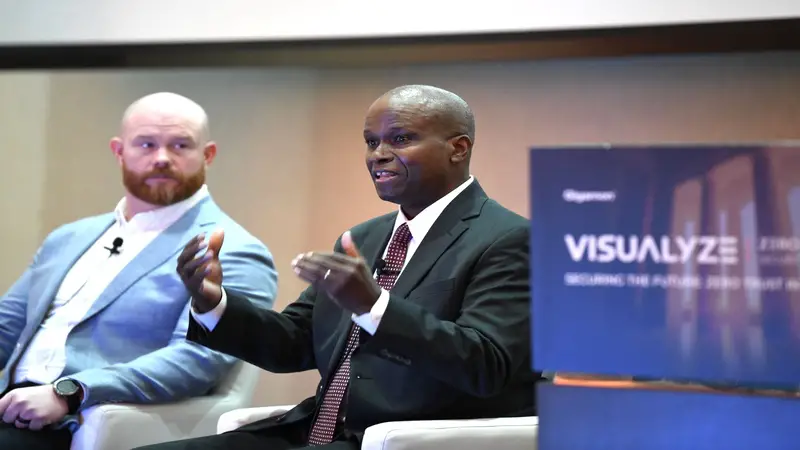
Government agencies and private sector firms need to boost their cybersecurity capabilities to keep pace with increasing threats and should turn to AI and quantum computing for help in pursuing that goal, Federal cybersecurity experts said today at the Visualyze Zero Trust Security Summit hosted by MeriTalk and Gigamon in Washington, D.C
Conrad Bovell, branch chief-cybersecurity advisory and strategy in the Department of Health and Human Services (HHS) CIO office, talked about the possibilities that AI and quantum computing hold for improving security.
“Everyone born after 1994, those hackers will be leveraging AI and quantum computing capabilities to break existing cryptographic standards and introduce new methodologies and approaches to compromise your environment,” stated Bovell.
“So we need to be able to respond at the pace of the threat,” he said. “Looking at it through a zero trust lens, we also need to leverage AI and quantum computing capabilities to identify those activities consistent with compromise,” added Bovell.
During the same panel discussion, Lauren Boas Hayes, senior advisor for technology and innovation at the Cybersecurity and Infrastructure Security Agency (CISA), discussed the need for Federal agencies to lean on the Technology Modernization Fund (TMF) to expand their zero trust security capabilities.
“There have been many times where we’re talking about a particular incident [and] we understand that there’s an application of a particular technology that they exploited and the need for organizations to be able to modernize to whatever the newer version of that is, and really make a change quickly,” she said. That’s “where we say ‘this sounds like a great TMF project, why don’t we work with that agency to recommend that they maybe apply for some TMF funds,’” said Hayes.
She added that agencies should begin to look for any additional funding they can to advance their zero trust efforts.
“We need to find innovative ways to make sure we can fund [zero trust models] and get it implemented quickly in government so that we’re not talking about a multi-decade move to zero trust, but really talking about one that’s responsive to the threats that agencies are experiencing today in the real world,” said Hayes.
